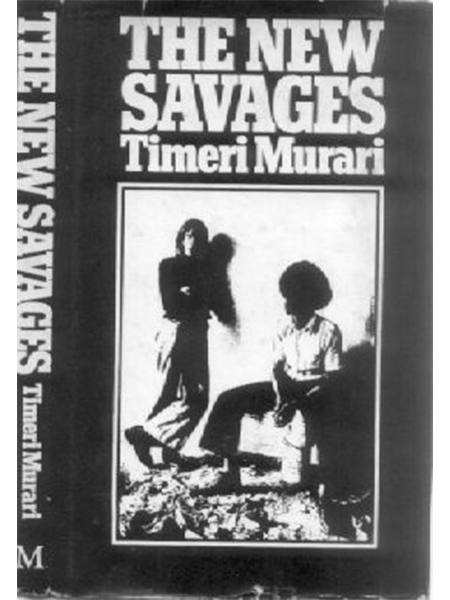THE NEW SAVAGES. 1975
Published: Macmillan UK
Liverpool is a tough swaggering city with an identity all its own. THE NEW SAVAGES is a powerful documentary about the lives of four boys – fictitious. It’s a tough unsentimental story of two days in their lives. On Friday nights the two gangs, half-caste and white, battle; on Saturday, they wait for the action that never, never comes. In this account of their pointless, hopeless lives, Timeri Murari brilliantly evokes one of the problem areas in our society.
-‘a classic piece of reporting on the young of Liverpool 8’. THE GUARDIAN.

The New Savages would hardly amount to much as fiction, if it were not for its threatening status as fact. Timeri Murari’s documentary novel of teenage violence, in Liverpool could be described as a workmanlike job: its generalisations are of the kind one might find in an intelligent newspaper, and its psychological and physical particularities offer little imaginative stimulus. But this would be to ignore the strengths of the book. It presents convincingly the language, the values and the rhythm of a world of ghetto life which the contemporary novel has rarely managed to penetrate. The act of attention that preceded its writing called for a sustained sympathy for which we should be grateful. Perhaps I’ve just read too much fiction which is a celebration of the author’s intelligence and sensitivity, or a release of his resentments, but I was thankful for a novelist who tried to present characters who were not projections of himself. THE TABLET
-The author spent two months in the area in an attempt to understand the subtle but dangerous change from traditional adolescent gang fighting over territory to the new battles over race. He has one immense advantage over most social scientists in that he writes easily and well. The book is recommended for its sensitive handling of the feelings of young blacks growing up in the slums of our cities. TIMES EDUCATIONAL SUPPLEMENT.
-The New Savages bears the marks of one who has spent months on location researching and he manages to characterize the anxiety and enjoyment of routine violence without patronising or glamorising adolescent energy. TIMES LITERARY SUPPLEMENT.
The publication of this book was opposed by people who are deeply concerned and involved in the whole Liverpool scene, and possess a much more comprehensive knowledge of the ghetto situation there than Timeri Murari could have accumulated in his admirable two months of round-the-clock investigation. Nevertheless, this prophetic statement on conditions there ought to reach a wide public. Liverpool is but a microcosm of our national situation.
Through the pages of this book one lives the homely experiences of white and black teenagers in two whole days of their Jives. And one comes from it appalled by the black despair that has settled like a cloud in this problem area.
The choice of material for the book has obviously been selective, creating fictitious types like Marko, the half- caste, experiencing the conflict of uncertain parentage, tender towards the ageing aunt who cares for him, tough with his black peers and in their company moving slowly towards self-destruction, and Bicklo, the cocky leader of the, white gang of Boot Boys, who move from their territory in constant street-fighting with the black people. Trenchy is caught continuously in this ferment of strife and crime. He typifies the struggle of many of his generation, who wrestle alone with a current which exerts a steady downward pull into the vortex of violence and crime around them. The white negro sensitivity is daily brutalised in the dirt and squalor of a senseless existence where he searches faces for meaning. As night comes down in the end of a forty-eight hour vigil in their ghettoes, the reader jolts to an ending. He is left with a host of unanswered questions and a desire for further knowledge and discussion. FRONTIER
